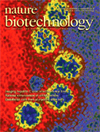 A molecular biologist could face a prison sentence for criticizing a report on transgenic gene spread. Ernesto Bustamante Donayre, vice president of the Peruvian College of Biologists, a professional organization, stands accused of defamation, a criminal offense, which in Peru can carry a prison term or fine. What triggered the suit was his public criticism of a report prepared by Antonietta Ornella Gutiérrez Rosati, a biologist at the La Molina National Agricultural University in Lima, identifying a P34S promoter and NK603 and BT11 transgenes in 14 of 42 maize samples from the Barranca region. Gutiérrez sent summaries of her findings to both the National Agricultural Research Institute and El Comercio newspaper in 2007 calling for a moratorium on transgenic crops until biosafety regulations are in place to prevent the spread to human food. Bustamante, a frequent contributor to radio and print, with no financial links to crop companies, described the alleged detection of three simultaneous transgenic events from two firms as “absurdly improbable” in his newspaper column and called for her claims to be peer reviewed. “The main point of my criticism,” Bustamante says, “was her going to the press instead of to her peers.” After Bustamante refused to retract his statements, Gutiérrez filed a suit for defamation. She later presented her findings to the Peruvian Genetic Society of which she is president, but would not comment on the case, except to say that “you must use respect” in scientific discussion and that her critics have “polarized” the debate. Although Peruvian farmers already import transgenic products for animal feed, several interest groups oppose their widespread introduction, which they label a foreign intrusion and threat to Peruvian biodiversity. An ongoing investigation is seeking to replicate Gutiérrez’s findings, but the government lacks the regulations to enforce its biosafety laws even if it does find transgenic crop outcrossing. The criminal case, however, threatens to stifle all scientific discussion. “Regardless of whether he gets sentenced or not I don’t think anyone is going to criticize anything,” says plant scientist Wayne Parrott, from the University of Georgia, a regular visitor to Peru. Bustamante’s colleague and supporter Luis Destefano Beltrán of the Cayetano Heredia Peruvian University agrees that “many people have tried to avoid taking sides.” Peru retains criminal defamation laws, which the Inter-American Commission on Human Rights concluded in 1995 are incompatible with the American Convention on Human Rights. Bustamante, who expects a ruling early this year, says, “The point is not whether I’m right or wrong. It’s the fact that for criticizing somebody on scientific grounds I’m being tried in criminal court.”
A molecular biologist could face a prison sentence for criticizing a report on transgenic gene spread. Ernesto Bustamante Donayre, vice president of the Peruvian College of Biologists, a professional organization, stands accused of defamation, a criminal offense, which in Peru can carry a prison term or fine. What triggered the suit was his public criticism of a report prepared by Antonietta Ornella Gutiérrez Rosati, a biologist at the La Molina National Agricultural University in Lima, identifying a P34S promoter and NK603 and BT11 transgenes in 14 of 42 maize samples from the Barranca region. Gutiérrez sent summaries of her findings to both the National Agricultural Research Institute and El Comercio newspaper in 2007 calling for a moratorium on transgenic crops until biosafety regulations are in place to prevent the spread to human food. Bustamante, a frequent contributor to radio and print, with no financial links to crop companies, described the alleged detection of three simultaneous transgenic events from two firms as “absurdly improbable” in his newspaper column and called for her claims to be peer reviewed. “The main point of my criticism,” Bustamante says, “was her going to the press instead of to her peers.” After Bustamante refused to retract his statements, Gutiérrez filed a suit for defamation. She later presented her findings to the Peruvian Genetic Society of which she is president, but would not comment on the case, except to say that “you must use respect” in scientific discussion and that her critics have “polarized” the debate. Although Peruvian farmers already import transgenic products for animal feed, several interest groups oppose their widespread introduction, which they label a foreign intrusion and threat to Peruvian biodiversity. An ongoing investigation is seeking to replicate Gutiérrez’s findings, but the government lacks the regulations to enforce its biosafety laws even if it does find transgenic crop outcrossing. The criminal case, however, threatens to stifle all scientific discussion. “Regardless of whether he gets sentenced or not I don’t think anyone is going to criticize anything,” says plant scientist Wayne Parrott, from the University of Georgia, a regular visitor to Peru. Bustamante’s colleague and supporter Luis Destefano Beltrán of the Cayetano Heredia Peruvian University agrees that “many people have tried to avoid taking sides.” Peru retains criminal defamation laws, which the Inter-American Commission on Human Rights concluded in 1995 are incompatible with the American Convention on Human Rights. Bustamante, who expects a ruling early this year, says, “The point is not whether I’m right or wrong. It’s the fact that for criticizing somebody on scientific grounds I’m being tried in criminal court.”
First published by Nature Biotechnology: [html] or as it appeared in print [pdf].